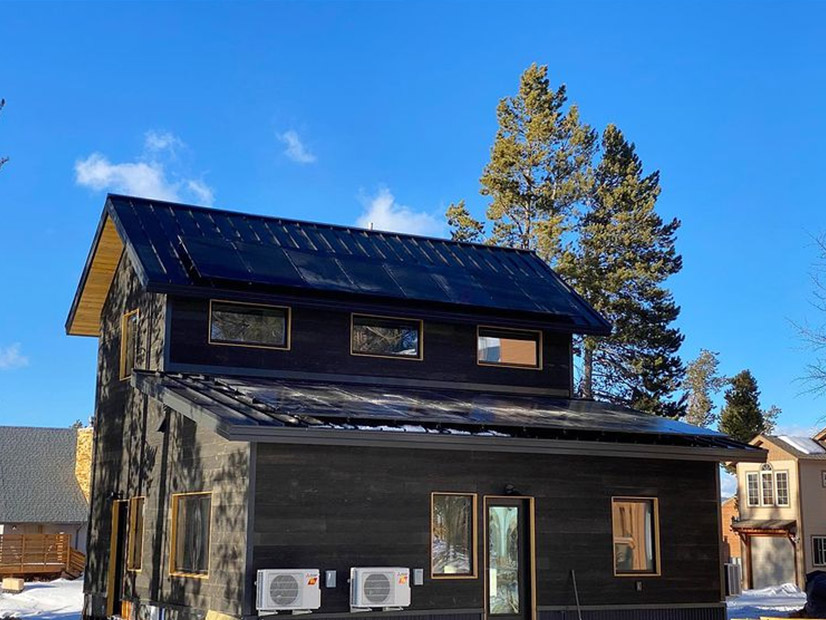A net-zero home designed and built for one of the coldest climates in the contiguous U.S. was named first-place winner of the U.S. Department of Energy’s 2021 Solar Decathlon. The student team from the University Colorado, Boulder built the now occupied house specifically as a model for affordable housing in Fraser, Colo., a mountain community where most new construction skews toward luxury, resort-style second homes.
Presenting the award during a virtual ceremony on April 18, Energy Secretary Jennifer Granholm said the house “combined strong architecture and thoughtful market potential and innovative technologies” while showcasing “energy-efficient performance in its high-altitude cold climate.” (See Solar Decathlon Trains Next Generation of Green Architects.)
The two-story, 1,176-square-foot SPARC (sustainability, performance, attainability, resilience and community) house employs three high-efficiency cold-climate heat pumps that can handle Fraser — unofficial title: “Icebox of the Nation” — an energy recovery ventilator and a heat pump water heater. Its 7.6-kW array of solar panels covering the roof’s south side uses tracking to take advantage of the more than 300 days of sunshine it gets every year. The heat pumps, water heating, electric vehicle charging systems, lighting and some plug loads can be remote controlled or timed to minimize electricity use during peak periods and maximize the use of solar power. A 300-square-foot rental unit attached to the house shares the washer and dryer in the main unit.
“It’s so well insulated with multiple layers of wool and quad-lite windows that from the inside, it’s almost impossible to hear the regular train traffic that rumbles past town,” the university said. “And the house is so energy efficient, it’s already selling energy back to the local power grid — all while temperatures still drop below freezing at night and the owners use it to charge their electric car.”
The owners spent about $400,000 to build the prefabricated house — assembled from 15 large wall panels — far less than comparable new builds in the area.
More than 30 students and faculty spent three years working on the house, including those in architectural engineering, civil engineering, mechanical engineering, business, environmental design and anthropology.
It’s the third win for CU Boulder, which also won the inaugural 2002 event and again in 2005.
Second place went to the team at the University of Waterloo in Ontario, Canada, which partnered with Habitat for Humanity to build a net-zero home in an indigenous Chippewa community.
The University of Nevada, Las Vegas took third place for its net-zero home design for a military veteran with PTSD or traumatic brain injury.






